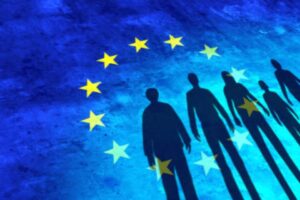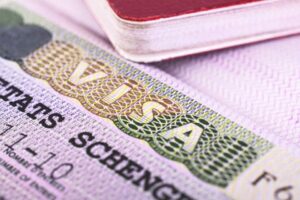The European Council and Parliament have reached an agreement on the European Digital Covid Certificate, according to announcements published by both the Council and the Parliament.
According to the Council’s announcement, the certificate will be fully in-use by 1 July 2021.
In order to qualify to receive the certificate, a traveler must provide proof that they have received the full dosage of an EU-approved vaccination, recovered from Covid-19, or have tested negative for Covid-19 before arrival in Europe.
Travelers can receive the certificate in either paper or digital format.
The aim of the agreement on the Covid certificate is to “facilitate free movement during the pandemic,” which has not been allowed for more than one year at the time of writing this article.
Interestingly, the Parliament claims that the green certificate will not be considered to be a travel document or a precondition to exercise the right to freedom of movement, despite the purpose of the certificate being to facilitate freedom of movement.
“The certificate will not be a precondition to exercise the right to free movement and will not be considered a travel document,” the Parliament’s announcement reads.
There are concerns in Europe that the green certificate will become a permanent precondition to exercise the right to free movement within the Schengen Area, despite the Parliament and Council’s claims that it will not be in-place longer than 12 months.
In addition, travel restrictions can still be imposed by individual Member States whether the digital green certificate is in-use or not, possibly further muddying the waters surrounding travel and freedom of movement in Europe.
In practice, a traveler to the Schengen Area will be required to obtain a Schengen Visa as usual, followed by the process of obtaining the digital green certificate, and might still be required to quarantine in their destination country despite being vaccinated. Further, the traveler could be prevented from entering other Member States, depending on their individual rules.
Further, the Council’s intentions appear to be much more geared towards more permanent, lasting control over the freedom of movement of Europeans and tourists, while the Parliament is attempting to set safeguards against this. As a result, the agreement does not meet either party’s objectives.
“Whilst the agreement reached today does not fully meet the EP’s demands, it certainly signifies a major improvement to the current status quo for millions of EU citizens. The EU digital Covid certificate will restore free movement within the EU, as member states start lifting restrictions to free movement across Europe. This agreement is the first step to get the Schengen area back on track,” said Juan Fernando Lopez Aguilar, Chair of the Parliament’s Civil Liberties Committee and rapporteur.
Despite all of the controversy, the Digital Covid Certificate is largely seen by the EU’s governing bodies as a necessary and legal way to begin allowing people to exercise their right to freedom of movement once again.
The next step for the certificate will be to go to vote once more in the 1 June 2021 Plenary Session. If passed, it will enter into force the following month.









